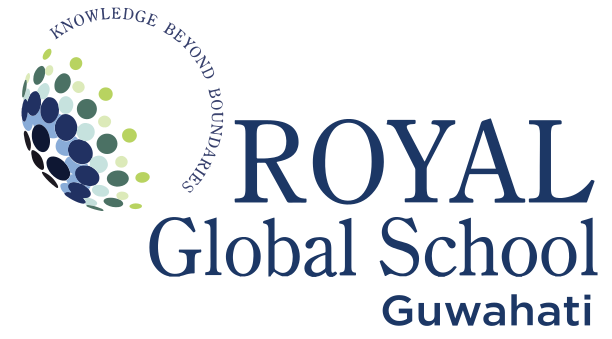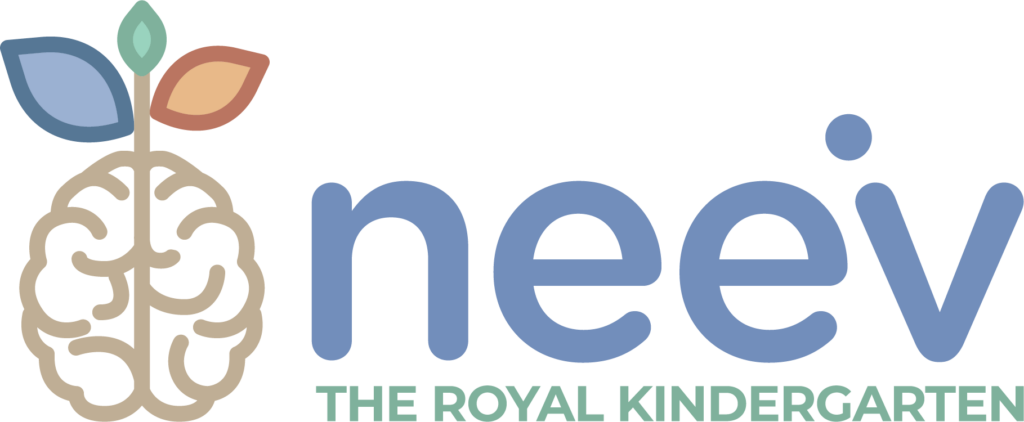
Nursery - Grade-1
Welcome to ‘Neev’, the Early Years Program at Royal Global School. Designed for ages 3 to 6, our program nurtures young learners through a play-based, balanced approach that fosters cognitive, emotional, and social growth. Developed in collaboration with Cambridge experts, ‘Neev’ provides a strong foundation, preparing children for a smooth transition to primary education.
Cambridge early years (Age 3 to 6 Years) & Primary Cambridge (CLASS 1)
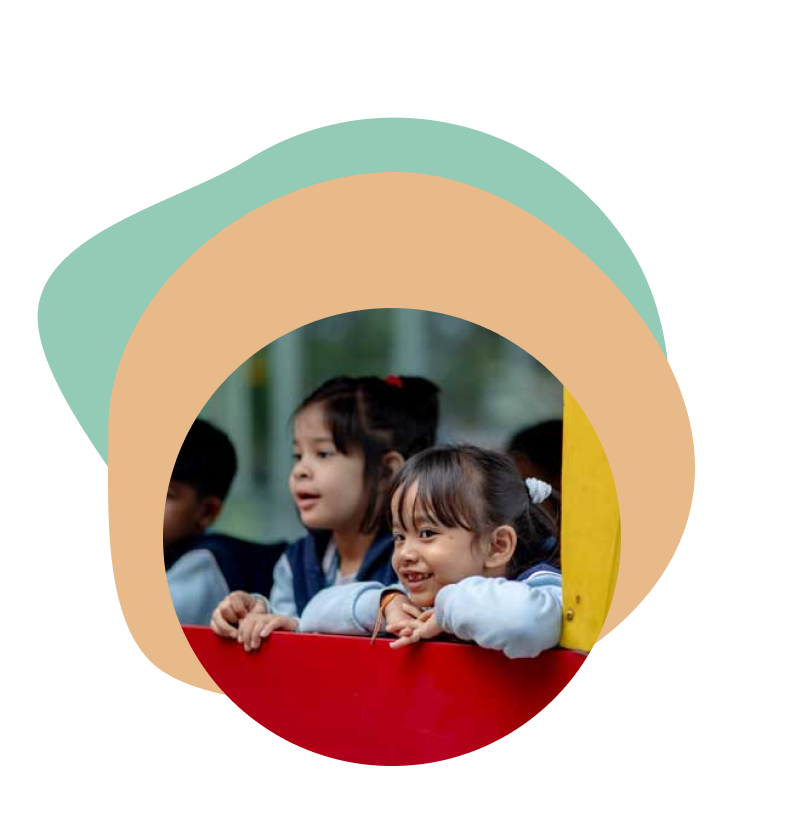
Welcome to the ‘Neev’, Early Years Program of Royal Global School, Cambridge School Early Years Program (Ages 3 to 6) and Primary Cambridge (Grade-1)
Our Early Years program is designed to provide young learners with the strongest possible start, helping them achieve crucial developmental milestones and excel both within and beyond the classroom. At ‘Neev’ , we believe in nurturing well-rounded, confident, and engaged young minds.
EY1
For ages 3-4
EY2
For ages 4-5
EY3
For ages 5-6
GRADE-1
For ages 6-7
OUR APPROACH
We developed Cambridge Early Years in collaboration with trusted early years experts, so it reflects the very latest educational thinking.
Our approach is built around these key principles:
Experience
Cambridge schools are given the power to shape their curriculum around how they want students to learn.
Active
Children should be involved in their own learning through well-planned experiences that help them develop competence, agency, emotional attachment and self-worth.
Balance
Learning should encourage a balance of physical, cognitive, language and communications, and social and emotional development.
Play
Learning should be age appropriate, play-based and child centred. It should include both child- and adult-led activities.
Transition
Early years education should help children transition successfully to primary school, moving from informal, play-based learning to teaching that is more formal.
KEY HIGHLIGHTS
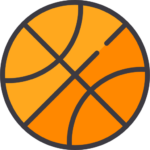
PLAY BASED LEARNING WITH A CHILD-CENTERED APPROACH
We recognise that learning is best when centered around the child involving play and fun.
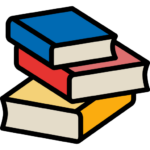
COMPREHENSIVE AND BALANCED CURRICULUM WITH CAMBRIDGE ATTRIBUTES
A thoughtfully crafted curriculum offering a wide range of subjects and activities to foster all-rounded development.
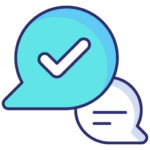
COMMUNICATION, LANGUAGE AND LITERACY
Your children will be encouraged to develop their speaking, listening, reading and writing skills.
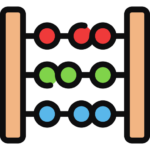
MONTESSORI TOOLS FOR SKILL DEVELOPMENT
Best Montessori tools to facilitate skill development in a hands-on, interactive manner.
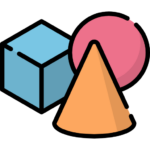
NUMERACY & DATA HANDLING
Your children will begin to develop mathematical and analytical thinking.

GLOBAL OUTLOOK WITH INDIAN VALUES
We cultivate a global outlook while instilling Indian values in our students.

PLAY BASED LEARNING WITH A CHILD-CENTERED APPROACH
We recognise that learning is best when centered around the child involving play and fun.

COMPREHENSIVE AND BALANCED CURRICULUM WITH CAMBRIDGE ATTRIBUTES
A thoughtfully crafted curriculum offering a wide range of subjects and activities to foster all-rounded development.

COMMUNICATION, LANGUAGE AND LITERACY
Your children will be encouraged to develop their speaking, listening, reading and writing skills.

MONTESSORI TOOLS FOR SKILL DEVELOPMENT
Best Montessori tools to facilitate skill development in a hands-on, interactive manner.

NUMERACY & DATA HANDLING
Your children will begin to develop mathematical and analytical thinking.

GLOBAL OUTLOOK WITH INDIAN VALUES
We cultivate a global outlook while instilling Indian values in our students.
CAMBRIDGE EARLY YEARS CURRICULUM
Cambridge Early Years is offered at “Neev” in Royal Global School . This curriculum has been developed by Cambridge International and Cambridge University Press, both part of the world-renowned University of Cambridge. Typically for 3 to 6 year olds, and Primary Cambridge 6-11 yrs old. It is the start of an exciting educational journey that helps young learners develop adequate knowledge, understanding and skills they need to make the best possible start in life. It is built around four areas of child development and offers engaging classroom resources, a range of assessment approaches to measure young learners’ progress. The three levels of early year curriculum are very flexible to cater to every child’s needs, capabilities and interests.
Why is this Curriculum Unique?
The Cambridge Early Years and Primary Curriculum have been developed by a team of practioners experts who have brought together evidence of best practice from early years education across the world. It reflects best practice in a way that embraces local, regional, national contexts and support cognitive, communication, social and emotional development.
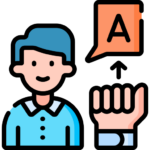
LANGUAGE & COMMUNICATION DEVELOPMENT
The program supports learners regardless of their English proficiency level when they begin. It also accommodates a bilingual or multilingual approach for learners who speak a home language other than English, ensuring inclusive learning for all.
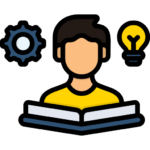
COGNITIVE DEVELOPMENT
It prepares children with essential knowledge, skills, and understanding for the next phase of their education, whether they continue with Cambridge Primary or choose another program.
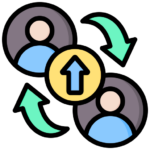
SOCIAL AND EMOTIONAL DEVELOPMENT
With a comprehensive and balanced approach, engaging activities, support from skilled educators, and thoughtful observation methods, it ensures the holistic social and emotional development of each child, fostering meaningful growth and progress.
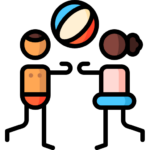
PHYSICAL DEVELOPMENT
As a child-centered, play-based program, it fosters self-development by allowing children to progress at their own pace, encouraging independence, decision-making, and building self-confidence.
Is the curriculum sync with Indian NEP 2020?
Aligned with the National Education Policy (NEP) 2020, Cambridge International has introduced a new primary and lower secondary curriculum for students aged 5 to 14. This curriculum includes subjects like art and design, digital literacy, physical education, and music. In February 2021, Cambridge became the first education board to launch an early childhood education curriculum based on the NEP.
Cambridge International, along with Cambridge University Press, has also introduced the ‘Cambridge Early Years’ programme in India for children aged 3 to 6. Designed to meet the needs of young learners in India, the programme focuses on physical, cognitive, language, communication, and social-emotional development. It offers a play-based, child-centered approach, preparing children for a smooth transition to primary education across different educational boards.
School Timing

8:00 am to 12:30 pm (Grade Nur-UKG)
8:00 am to 2:10 pm (Grade I)

Nursery - Grade-1
Welcome to ‘Neev’, the Early Years Program at Royal Global School. Designed for ages 3 to 6, our program nurtures young learners through a play-based, balanced approach that fosters cognitive, emotional, and social growth. Developed in collaboration with Cambridge experts, ‘Neev’ provides a strong foundation, preparing children for a smooth transition to primary education.
Cambridge early years (Age 3 to 6 Years) & Primary Cambridge (CLASS 1)

Welcome to the ‘Neev’, Early Years Program of Royal Global School, Cambridge School Early Years Program (Ages 3 to 6) and Primary Cambridge (Grade-1)
Our Early Years program is designed to provide young learners with the strongest possible start, helping them achieve crucial developmental milestones and excel both within and beyond the classroom. At ‘Neev’ , we believe in nurturing well-rounded, confident, and engaged young minds.
EY1
For ages 3-4
EY2
For ages 4-5
EY3
For ages 5-6
GRADE-1
For ages 6-7
OUR APPROACH
We developed Cambridge Early Years in collaboration with trusted early years experts, so it reflects the very latest educational thinking.
Our approach is built around these key principles:
Experience
We believe in giving Cambridge schools the power to shape their curriculum around how they want students to learn.
Active
Children should be involved in their own learning through well-planned experiences that help them develop competence, agency, emotional attachment and self-worth.
Balance
Learning should encourage a balance of physical, cognitive, language and communications, and social and emotional development.
Play
Learning should be age appropriate, play-based and child centred. It should include both child- and adult-led activities.
Transition
Early years education should help children transition successfully to primary school, moving from informal, play-based learning to teaching that is more formal.
KEY HIGHLIGHTS

PLAY BASED LEARNING WITH A CHILD-CENTERED APPROACH
We recognise that learning is best when centered around the child involving play and fun.

COMPREHENSIVE AND BALANCED CURRICULUM WITH CAMBRIDGE ATTRIBUTES
A thoughtfully crafted curriculum offering a wide range of subjects and activities to foster all-rounded development.

COMMUNICATION, LANGUAGE AND LITERACY
Your children will be encouraged to develop their speaking, listening, reading and writing skills.

MONTESSORI TOOLS FOR SKILL DEVELOPMENT
Best Montessori tools to facilitate skill development in a hands-on, interactive manner.

NUMERACY & DATA HANDLING
Your children will begin to develop mathematical and analytical thinking.

GLOBAL OUTLOOK WITH INDIAN VALUES
We cultivate a global outlook while instilling Indian values in our students.
CAMBRIDGE EARLY YEARS CURRICULUM
Cambridge Early Years is offered at “Neev” in Royal Global School . This curriculum has been developed by Cambridge International and Cambridge University Press, both part of the world-renowned University of Cambridge. Typically for 3 to 6 year olds, and Primary Cambridge 6-11 yrs old. It is the start of an exciting educational journey that helps young learners develop adequate knowledge, understanding and skills they need to make the best possible start in life. It is built around four areas of child development and offers engaging classroom resources, a range of assessment approaches to measure young learners’ progress. The three levels of early year curriculum are very flexible to cater to every child’s needs, capabilities and interests.
Why is this Curriculum Unique?
The Cambridge Early Years and Primary Curriculum have been developed by a team of practioners experts who have brought together evidence of best practice from early years education across the world. It reflects best practice in a way that embraces local, regional, national contexts and support cognitive, communication, social and emotional development.

LANGUAGE & COMMUNICATION DEVELOPMENT
The program supports learners regardless of their English proficiency level when they begin. It also accommodates a bilingual or multilingual approach for learners who speak a home language other than English, ensuring inclusive learning for all.

COGNITIVE DEVELOPMENT
It prepares children with essential knowledge, skills, and understanding for the next phase of their education, whether they continue with Cambridge Primary or choose another program.

SOCIAL AND EMOTIONAL DEVELOPMENT
With a comprehensive and balanced approach, engaging activities, support from skilled educators, and thoughtful observation methods, it ensures the holistic social and emotional development of each child, fostering meaningful growth and progress.

PHYSICAL DEVELOPMENT
As a child-centered, play-based program, it fosters self-development by allowing children to progress at their own pace, encouraging independence, decision-making, and building self-confidence.
Is the curriculum sync with Indian NEP 2020?
Aligned with the National Education Policy (NEP) 2020, Cambridge International has introduced a new primary and lower secondary curriculum for students aged 5 to 14. This curriculum includes subjects like art and design, digital literacy, physical education, and music. In February 2021, Cambridge became the first education board to launch an early childhood education curriculum based on the NEP.
Cambridge International, along with Cambridge University Press, has also introduced the ‘Cambridge Early Years’ programme in India for children aged 3 to 6. Designed to meet the needs of young learners in India, the programme focuses on physical, cognitive, language, communication, and social-emotional development. It offers a play-based, child-centered approach, preparing children for a smooth transition to primary education across different educational boards.
School Timing

